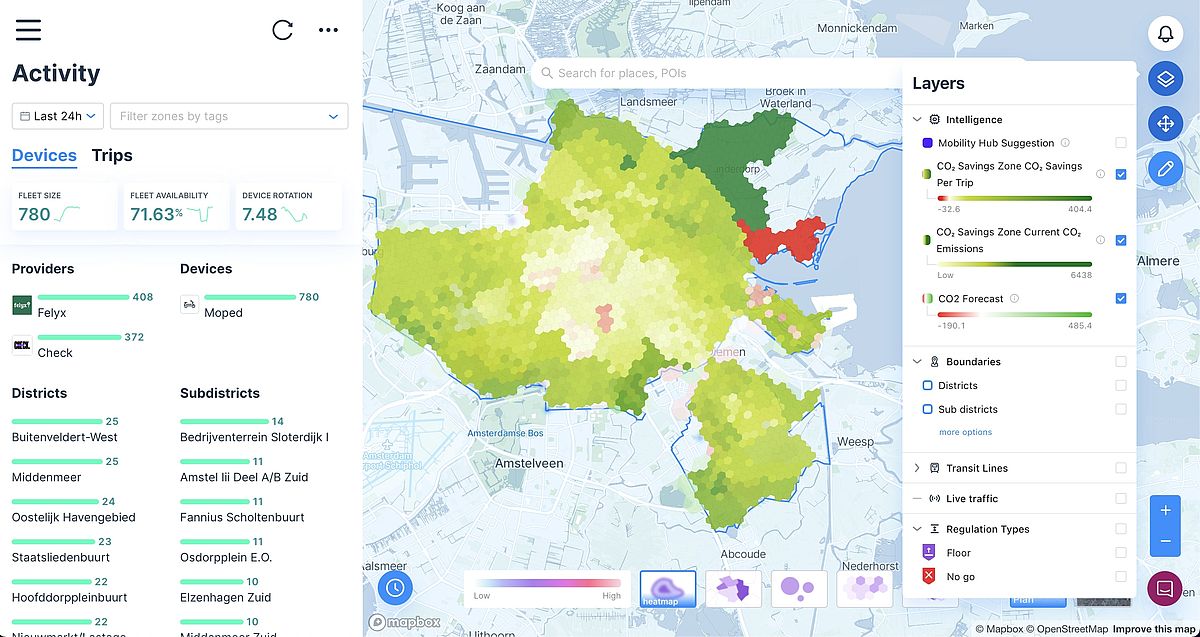
Introduction
The MPAT tool (Mobility Policy Auto Tuner) is an engine to optimize the CO2 emission-reduction potential of city mobility policies, beginning with shared micro-mobility. By understanding the geographies where a trip on an electric-powered shared bicycle, scooter, or moped is most likely to create an emissions saving (ie, to replace an internal combustion engine vehicle trip), the tool is able to make recommendations for areas to implement new policies (ex, subsidies on rides, or removals of fleet caps).

The impact of these policies can be monitored with a specific view on CO2 emissions savings.
MPAT’s innovativeness lies in the way it calculates shared mobility’s CO2 savings potential, also anticipating its growth and change. By using AI to forecast where demand for low-carbon micro-mobility trips will grow, it goes beyond currently existing practices for modelling the decarbonization potential of mode shift and can directly inform policy making to realise that potential.
Market potential
The solution is ready for large-scale commercialization, as the underlying tool is already deployed in 40 markets around Europe. The market of the solution remains large and growing. The application of the solution beyond its current focus on shared micro-mobility remains a likely possibility. The optimisation of taxi services, ridehail, goods delivery, and eventually aerial drones and autonomous vehicles with the objective of reducing CO2 emissions is a clear objective articulated in most cities' Sustainable Urban Mobility Plans.
Consortium
The MPAT Tool has been developed by a consortium of Vianova and Rebel. Vianova uses connected vehicles data to help cities and mobility operators build more efficient and sustainable transport systems for people and goods. Rebel provides transportation advice and support for transportation by road, rail and waterways, high-speed links, high-capacity metro systems, fast trams, ports and airports.
